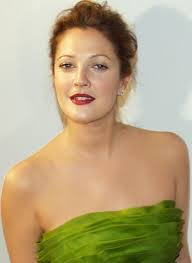This is a guest post by Stacey Davis.
I am a risk taker.
When I say risk, I’m talking about the impulsive, why-the-hell-not, damn-the-consequences kind.
Case in point, several years ago I convinced my husband that we should open an ice cream shop in our neighborhood. Why did I think this was a good idea for two full-time working adults with a toddler at home? Well, I couldn’t get the image out of my head of kids on bikes coming in with piggy bank change clinched in their palms, falling over themselves to buy penny candy.
“It’ll be great” was my best argument for why we should jump off this cliff. And it was great. We had a stream of neighborhood kids pour in with eager faces and wander out with sticky ones. But, despite our enthusiasm, it failed.
After 11 months, we closed the doors. But I’d do it again. I’ve never looked upon that experience as a mistake. Instead, I think, “Damn, if I knew then what I know now, I could have killed it.”
How you define risk – be that financial, ethical, physical or moral – is vital. It shapes who we are and, even more so, what we see in the media and onscreen. We all know that male studio heads define “risk” as films helmed by women (despite the overwhelming stats that women-led films do better financially). It is clear to me that now, more than ever, we need risk-takers in charge. We need risk-takers to make women better represented in film, on both sides of the camera.
So, my question is this: How can we all learn to take more risks?
How can we encourage each other to take them? For starters, we must never let past failures influence future success. A few years after the ice cream shop shuttered, I decided it was time for me to move on from the law firm where I had practiced for the last 12 years. My passion was entertainment law and the only way to pursue that path in Birmingham, Ala. was to set up my own shop.
I never once second-guessed the idea of starting another small business. Consequences be damned, remember? So two months later, I opened my own entertainment law practice, the Law Firm of Stacey A. Davis. It hasn’t been easy, but a year later the doors are still open.
I didn’t let one failure chain me down or stop me from taking another risk. I couldn’t. The fear of sitting behind a desk working another 10 years at a job that was just a job and not a passion was far more insidious than the fear of failure.
As Drew Barrymore said, “If you don’t take risks, you’ll have a wasted soul.” And my soul craved the risk.
Still, I can hear the chorus shout: “It’s easy for you. You’ve got a safety net” or “Your family is so supportive.” Whether or not that’s the case, I encourage everyone to take the plunge themselves. Regardless of your circumstance, it does not feel safe.
During my legal career, I’ve represented a lot of first-time filmmakers who failed to achieve the level of success they wanted with their first film. Hell, some of them didn’t even finish their films. They took a risk and it didn’t pay off. But being afraid of failure only makes future success impossible. It is those filmmakers who shouted the mantra of consequences be damned and jumped off the cliff again (and again) that have etched out a career in this business.
One of my writing instructors once told me every no gets you closer to a yes. I’ve heard a lot of nos. And I looked at each one of them as a way to get one step closer to a yes (granted, that perspective is not always immediate and usually involves a margarita or two).
Call it eternal optimism. Call it the growth mindset. (If you haven’t read Carol Dweck’s Mindset, read it now.) But I believe that the risk mindset is the No. 1 quality a woman filmmaker needs in order to succeed in this industry. You’ve got to fight for it. You’ve got to take it.
So now I’ve moved on to my next adventure. Making my first film, The Sibling Code. I’ve been writing for many years and knew I needed to take the next step. It’s a big risk. Maybe my Seed & Spark crowdfunding campaign will fail. Maybe the film will be a flop. Maybe in a year I’ll say, “Damn, if I knew then what I know now, I could have killed it.” But I don’t live for maybes. I don’t get out of bed for maybes. My name is Stacey Davis and I take risks. And I wouldn’t have it any other way.
Stacey Davis is an entertainment attorney and the writer/producer of The Sibling Code, a comedic short about the love-hate relationship of siblings. Stacey lives in Birmingham with her husband, Nick, and 8- year-old-son, Charlie. Stacey can be reached at sdavis@staceydavislaw.com, www.staceydavislaw.com or @staceydavislaw.
For more information on The Sibling Code:
Twitter: @siblingcode
Facebook: /thesiblingcode
Website: www.thesiblingcode.com
Support: http://www.seedandspark.com/studio/sibling-code



